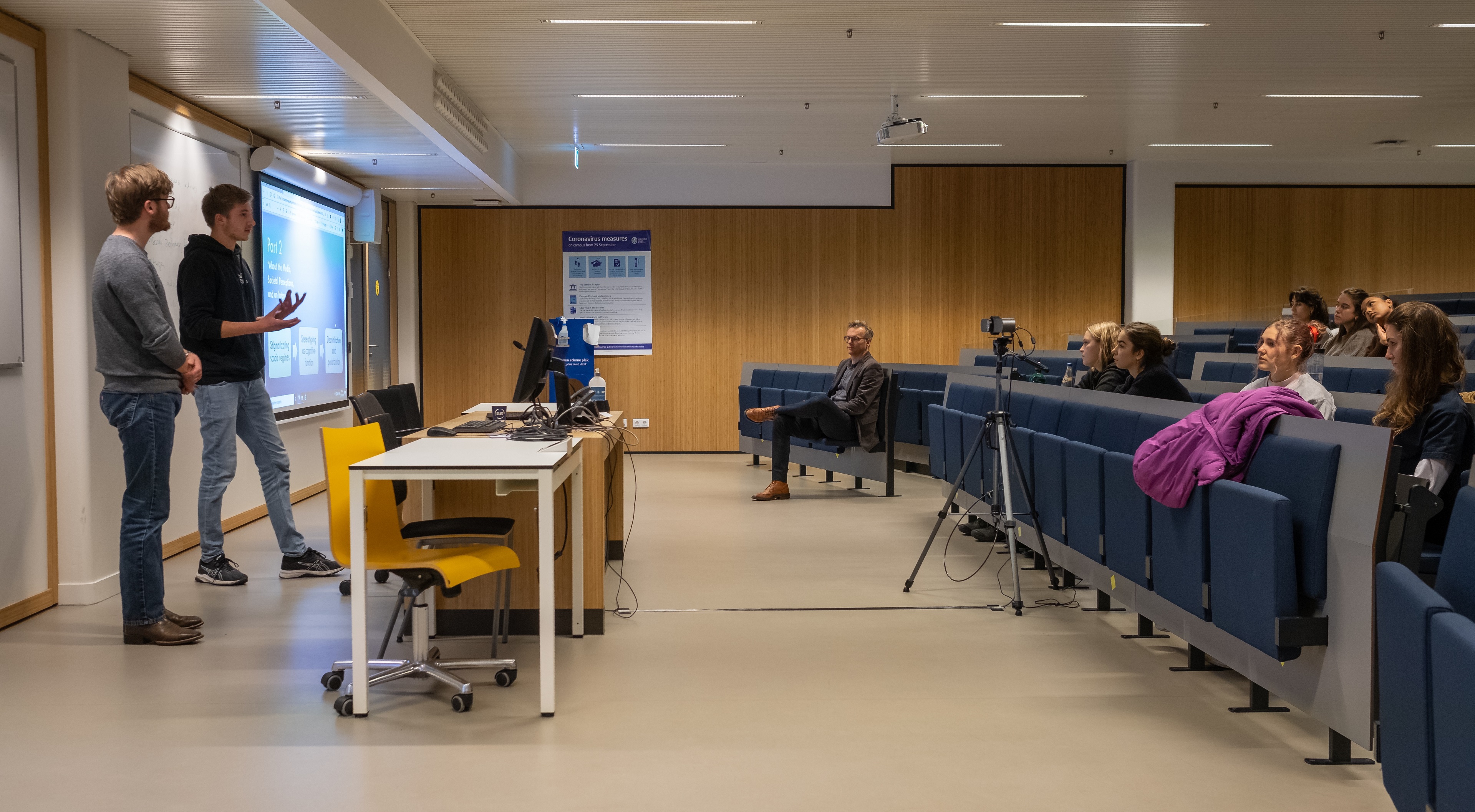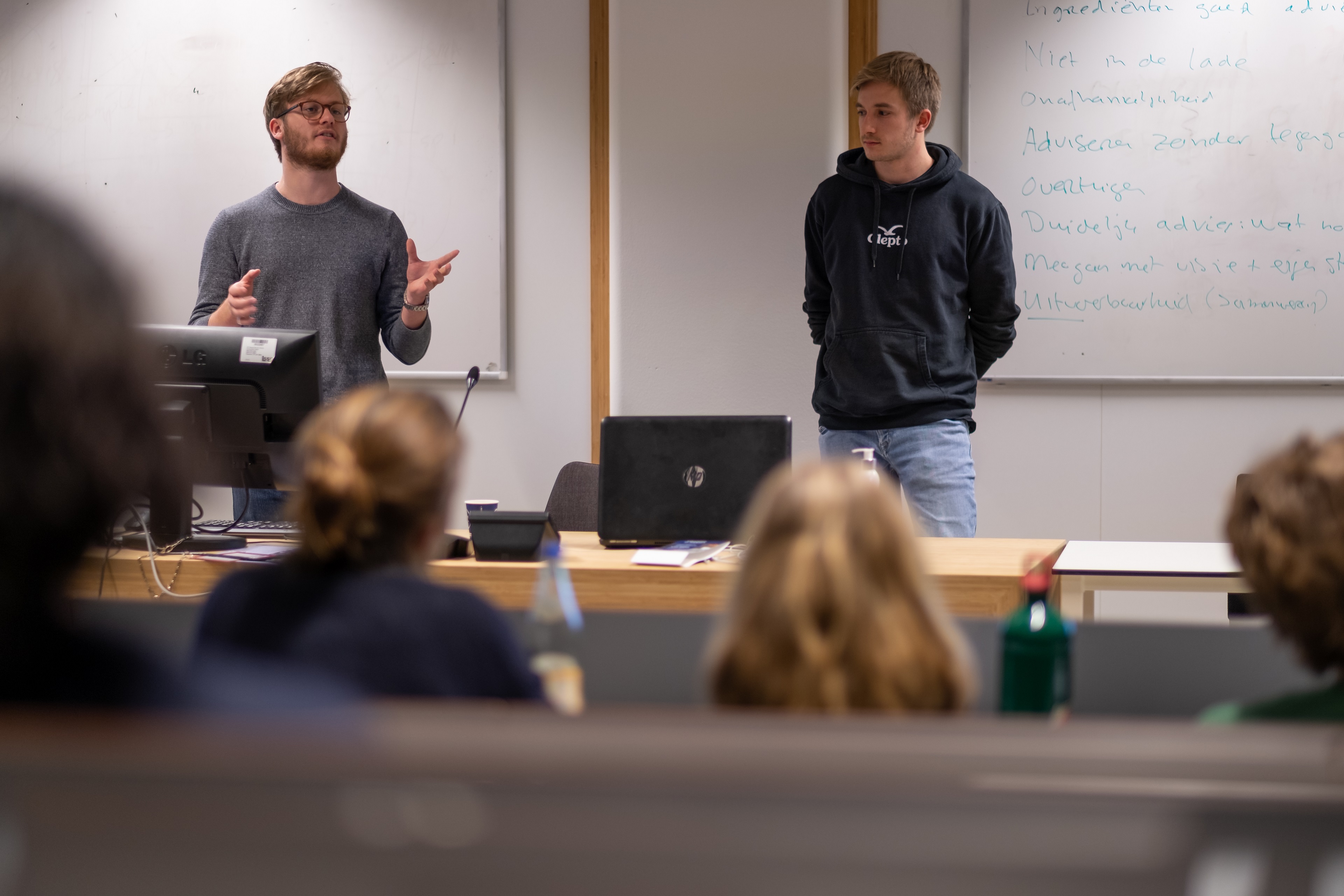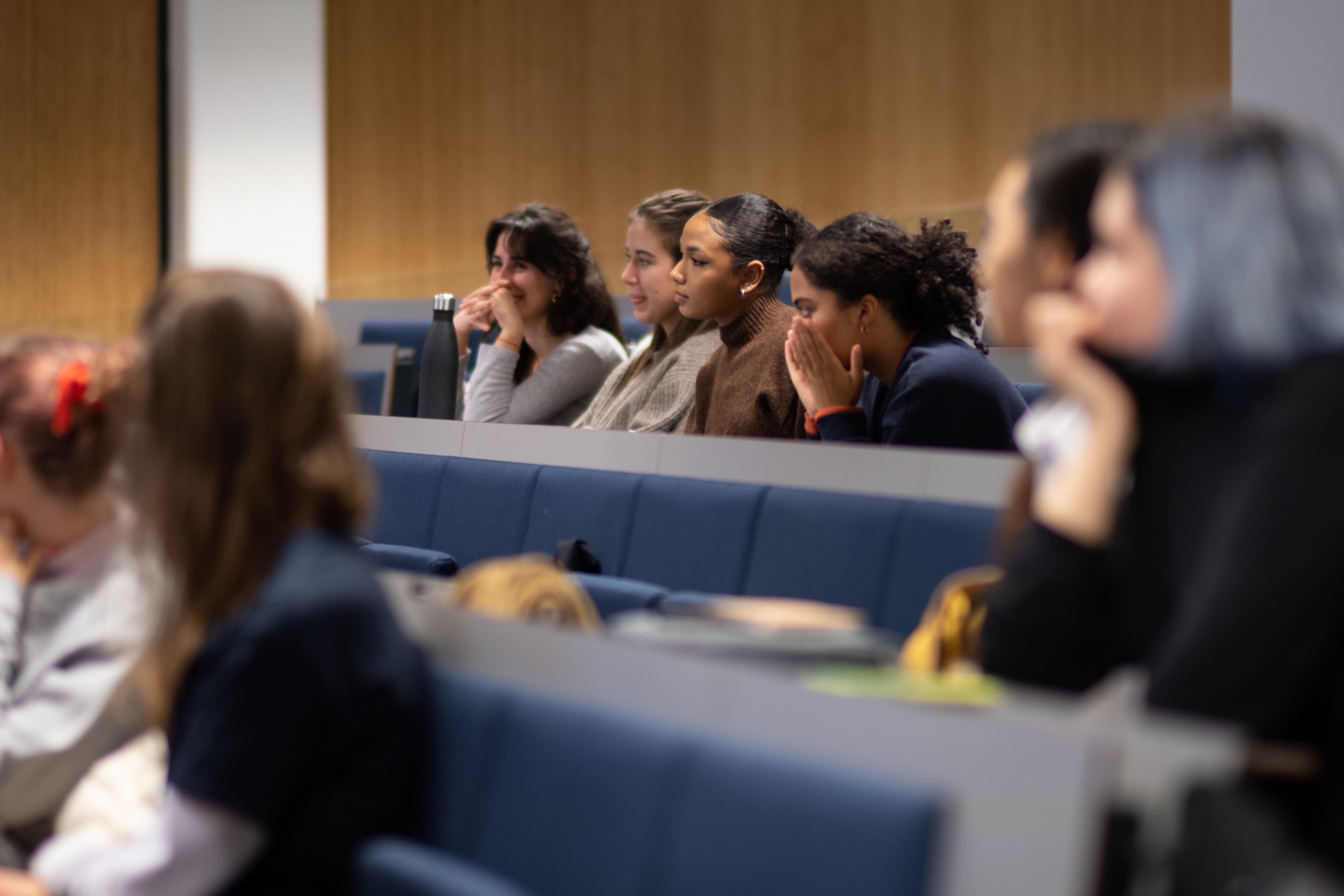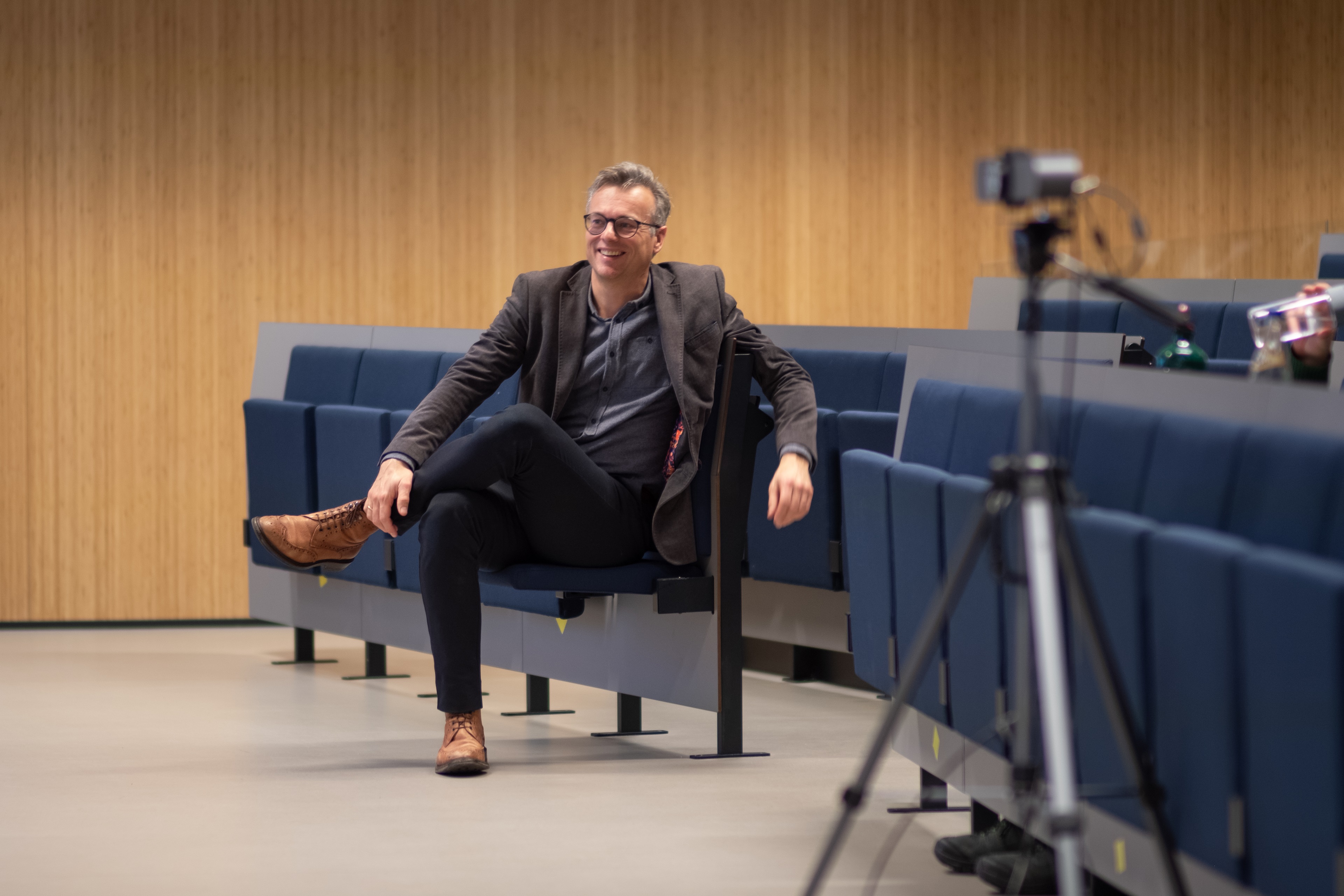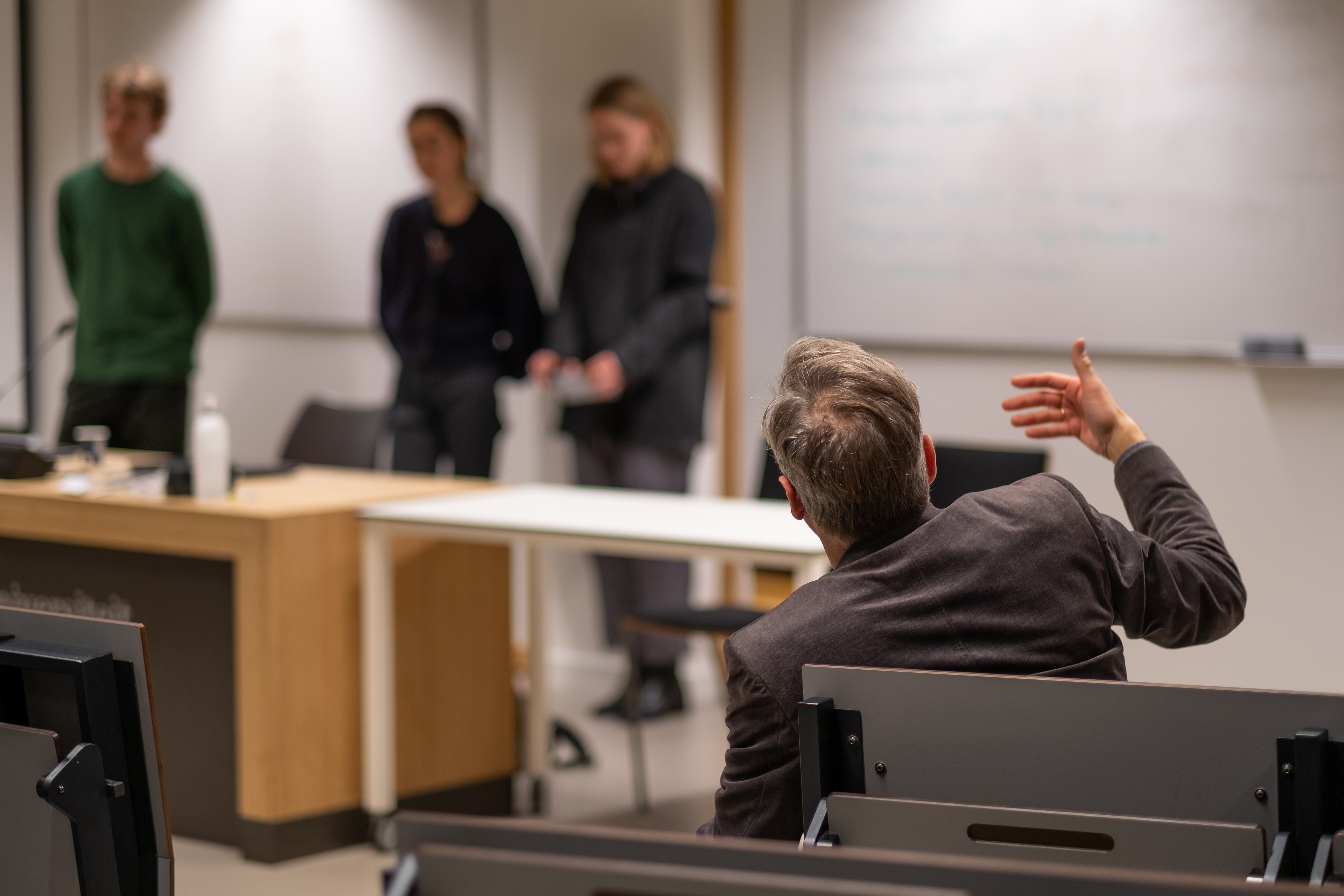
Learning about polarisation through conversations with refugees: ‘Our perception is often lacking’
Confronting your own biases, students of the course ‘Adults and Children in a Polarising World’ are not afraid to do exactly that. ‘The fact that my expectations of the interview were not in line with the outcome, was very informative.’
The course ‘Adults and Children in a Polarising World’ is part of the Honours College track Science and Society, organised by the Faculty of Social Sciences. After discussing the necessary theories about polarisation and stigmatisation, the students interviewed someone with personal experience.
Being aware of your assumptions
The goal was to create awareness of our own prejudices, explains teacher Rob van Waarde. ‘Beforehand, I ask the students to consider the assumptions they have regarding stigmatised groups, such as refugees or homeless people. While conducting the interviews, the students discover that these presuppositions are generally incorrect. Our own perception is often lacking.’

Honours participant Sarah found that her own experiences shaped her expectations of the interview. ‘As a black woman in Austria, people often assume that I am not a native, even though I was born and raised there. Therefore, I was very surprised that the asylum seeker I interviewed told me he had felt like he belonged in Dutch society from the moment he arrived.’
The interviews were also a valuable experience for student Baaba. ‘If you think about polarisation, you see it as this big macro concept, when in reality it happens on an individual level. It is only natural to have assumptions about someone, but the point is that you are aware of this. The fact that my expectations of the interview were not in line with the outcome was very informative.’
Taboo
Exclusion and stigmatisation are not necessarily easy topics to discuss, says Rob van Waarde. ‘They are taboo, because nobody wants to discriminate or have biases. However, most of us encounter the problem of polarisation on a daily basis. But at moments like these, how often do you really look at what is happening around you? Or how these processes affect you? This course offers the time and space to examine all this.’

Thinking differently
Student Nichol says the course gave her a chance to step out of her own bubble. She interviewed Basil, a Syrian refugee who has a hard time integrating in Dutch society. ‘He finds it strange that you cannot spontaneously meet up with a Dutch person, because they always have to check their schedule first.’
During the final presentations Nichol told the story of Basil by means of an illustrated video. ‘I really liked that I could be creative with it.’
Sarah and Baaba also made a video. They showed how different people think about Dutch identity. ‘For the asylum seeker we interviewed, democratic freedoms were very important, whereas another person said they appreciated the Dutch directness’, tells Sarah. She concludes: ‘Being Dutch means something else for everyone, therefore it is very foolish to exclude people from Dutch society on the basis your own definition of what it means to be Dutch.’
Text: Sarawitia Franken
Photos: Eric van den Bandt

